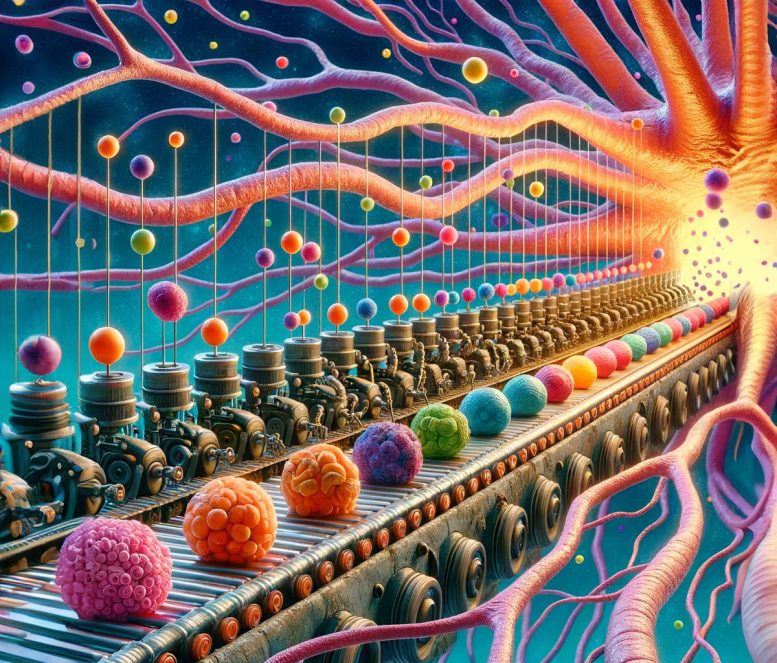
Groundbreaking Discovery in Brain Cell Research
Researchers at Auburn University have achieved a groundbreaking discovery, illuminating the process by which brain cells efficiently replace older proteins. This process is essential for maintaining effective neural communication and optimal cognitive function.
Innovative Study on Protein Recycling in Brain Cells
The findings were published on November 6 in the prestigious journal, Frontiers in Cell Development and Biology. The study, entitled “Recently Recycled Synaptic Vesicles Use Multi-Cytoskeletal Transport and Differential Presynaptic Capture Probability to Establish a Retrograde Net Flux During ISVE in Central Neurons,” explains the transportation and recycling of older proteins in brain cells.
Mechanism Behind Protein Replacement in Neurons
Dr. Michael W. Gramlich, an Assistant Professor of Physics at Auburn University, explains, “Cells in the brain regularly replace older proteins to maintain efficient thinking. However, the exact mechanism of how older proteins are targeted to be transported to where they need to be recycled remained an open question until now. Our research shows a specific pathway regulates how older proteins are transported to the cell body where they are recycled, allowing new proteins to take their place.”
Implications for Brain Health
This discovery has profound implications for understanding brain health. Without efficient protein replacement, neurons in the brain would degrade over time and become less efficient. Dr. Gramlich adds, “Our work reveals a regulatable pathway that can be modulated to accommodate increased or decreased brain function. This prevents the degradation of neurons over time.”
Collaborative Research Effort
The study was a collaborative effort involving graduate student Mason Parkes and undergraduate student Nathan Landers. Impressively, as an undergraduate student, Nathan Landers performed advanced computational programming that was pivotal in understanding the results of this research.
A Simple Yet Crucial Mechanism Uncovered
“We were surprised to find that a single simple and regulatable mechanism determines when older proteins are chosen to be recycled,” Dr. Gramlich remarks, emphasizing the significance of their findings.
Techniques Used in the Study
This publication is part of a collection focusing on trafficking and neural plasticity and learning. The researchers utilized a combination of techniques, including fluorescence microscopy, hippocampal cell cultures, and computational analyses, to determine the mechanisms that mediate older synaptic vesicle trafficking back to the cell body.
Potential for Future Research
The Auburn University research team is excited about the potential applications of their findings in furthering our understanding of brain health and degenerative neurological conditions. Their groundbreaking work is a testament to the innovative research being conducted at the institution.
Reference: “Recently recycled synaptic vesicles use multi-cytoskeletal transport and differential presynaptic capture probability to establish a retrograde net flux during ISVE in central neurons” by Mason Parkes, Nathan L. Landers and Michael W. Gramlich, 6 November 2023, Frontiers in Cell Development and Biology.
DOI: 10.3389/fcell.2023.1286915
6 Comments
There are literally zero details in this “article” about what the findings of the study actually are.
Exactly. What are the proteins? Older proteins? Newer proteins?
Sad.
Not a great article – it misses so many details. What was the simple and regulatable mechanism?
Sparse and sophomoric article. Was this written by GPT-3/-4?
To be honest, the comments were the best part of the read.
First time folks? Click the DOI at the bottom of the article lol